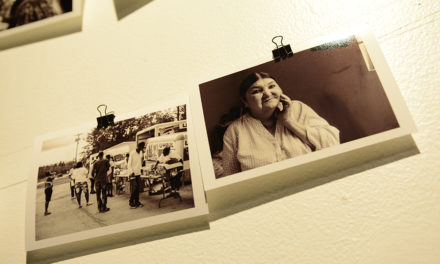Shawn Fredericks | Staff Writer
Sex positivity is a term that carries different connotations and definitions, making it difficult to accurately describe what sex positivity actually is. The Feminist Campus, the world’s largest pro-choice student network, defines sex positivity as “the belief that consensual sexual expression is both healthy and important in contributing to a safe and inclusive campus climate.”
The International Society for Sexual Medicine adds on, saying, “The term ‘sex positive’ can be interpreted in different ways. For most, it involves having positive attitudes about sex and feeling comfortable with one’s own sexual identity and with the sexual behaviors of others.”
Sex positivity is not just about having an abundant amount of sex; it is about the power of choice.
Omise’eke Tinsley, professor of African and African Diaspora Studies at the University of Texas, wrote in HuffPost, “Being sex positive isn’t just about saying yes to sex all the time. It’s about championing black women’s right to make sexual choices that leave us feeling positive about our sexuality and our lives. So I’m a sex-positive black feminist saying: respecting black women’s celibacy is also part of loving black women’s beauty, self-definition and sexuality.”
NC State University’s campus has made progress in the realm of sex positivity, but there is always room for improvement. Sexual expression should not be stigmatized and NC State campus should affirm all sexualities and sexual choices.
Andy DeRoin, program coordinator for the GLBT center, said, “I would like to have that type of conversation with organizations that offer sexual resources. Is it sex-positive to limit the number of condoms that someone can get? Are we promoting sex positivity by not having condoms freely accessible on campus?”
Maria Tudela, graduate assistant for the Women’s Center, articulated what a more sex-positive campus would look like at NC State:
“It would be centered around having discussions about sexual assault, sexual violence and interpersonal violence,” Tudela said. “It would also incorporate workshops [that] the Women’s Center hosts and facilitates talking about consent, what consent looks like in its various different forms and sex positivity. This is something that needs to be talked about, and the sex positivity movement’s ideas should be embraced.”
Education plays a huge role in making campus more sex-positive. Eileen Kelly, creator of Killer and the Sweet Thang, a sexual education blog, said, “With education comes understanding and ultimately breaking down the barrier of ignorance and shame. People don’t naturally hate. They hate things they don’t understand.”
“However,” Kelly continued, “if you can humanize actions, if you can give examples that pertain to real people, well how can you hate on that? You may not agree with it and that’s fine! I believe in exposure. When we are open to topics under the sexuality or gender umbrella, we have a greater understanding for those who are different than us and more acceptance overall.”
NC State’s student body as a community would benefit greatly by the incorporation of more sex positivity. However, individual students also stand to benefit from sex positivity.
DeRoin said, “A sex-positive perspective can not only increase our community response to sexual violence and prevention of sexual violence, but it can also boost positive aspects of existing relationships. It’s really cool if people who are sexual partners talk about how are we showing up in our sexual relationship together and are we embodying sex positivity and, if not, how could we be?”
NC State needs to embrace sex positivity in order to progress on issues such as sexual violence. When people, especially women, are empowered in their ability to make decisions about their sexuality without being impeded, people can be equally liberated to make any choice they want to make our society as a whole a better place to live.





